What sort of previous experience do I need to become a real estate agent?

Answer: I knew I wanted to be in real estate when I was in college, and a young agent was extremely uncommon. For that reason, I went into the hotel business, was a meeting planner, and sold promotional products before I started my fourth career.
 Now, we are seeing new agents right out of school (or soon thereafter) — especially when other members of their family are in the industry. I am thrilled to have been contacted by a senior from Alexandria City High School who wanted to intern with an agent as part of her Senior Experience. She will be heading off to Virginia Tech in the fall to major in Environmental Economics; however, as one of her first careers, she would like to take part in real estate.
Now, we are seeing new agents right out of school (or soon thereafter) — especially when other members of their family are in the industry. I am thrilled to have been contacted by a senior from Alexandria City High School who wanted to intern with an agent as part of her Senior Experience. She will be heading off to Virginia Tech in the fall to major in Environmental Economics; however, as one of her first careers, she would like to take part in real estate.
We have attended McEnearney’s business meetings, training sessions, open houses, closings, and she even already met with our recruiter!
According to Effirata Berasu, “Working with Lisa has been the best experience to learn about the world of real estate!”
Quite a few agents are like me in that they have been in one or more fields prior to entering real estate. I always like to ask my fellow agents what they did before they got into the business. In addition to previous sales roles, you would be surprised at some of the other answers, such as bankers, attorneys, teachers, nurses, photographers, writers, engineers, interior designers, construction contractors, home inspectors, technology fields, landscapers, and so many more.
 For me, my previous experience taught me to be a collaborator, a good listener, a creative resource, and a detail-oriented professional. Others bring skills from their former lives that they continue to use, allowing for the right agent for everyone.
For me, my previous experience taught me to be a collaborator, a good listener, a creative resource, and a detail-oriented professional. Others bring skills from their former lives that they continue to use, allowing for the right agent for everyone.
Since buying or selling a house can be extremely stressful, it is important to work with someone that is the right fit for you and your lifestyle or personality. Select an agent that makes you feel comfortable.
We just had a workshop on different personality styles and how they work with other similar or entirely different types of people. It was interesting to identify the traits for the “power,” “party,” “peace,” and “perfection” categories. Are they risk takers that are more bottom-line oriented? Or people that don’t like change and, therefore, are slower in making decisions? Do they rely on the present, future, or need information from the past to establish their next steps? Is data a key factor, or do they count on a gut reaction?
I love the testimonial from a client that chose to work with me after interviewing several other agents.
“Lisa is a joy to work with and is highly flexible and collaborative. Her ability to use the latest marketing technology effectively brought us a buyer in two days. Her warm personality and excellent interpersonal skills turned a stressful time into a truly enjoyable experience. Our thanks and appreciation for Lisa as a partner in selling our home in Old Town Alexandria.” – Jasper Womach and Marilynne Black
When people ask me how they can get started, I share my personal experience. Before I was licensed, I went to 5-10 open houses every weekend to learn about neighborhoods, price ranges, home styles, staging, and how the agents interacted with the attendees. When I became an agent, I worked 39 out of 52 weekends holding open houses for other agents until I established my own listings. In addition to the post-licensing education that is required once you pass your test and “hang” your license with a firm, I did my best to attend as many workshops and training sessions as possible in order to hit the ground running. Having a designated McEnearney mentor for my first 6 months allowed me to gain real-life knowledge from an extremely experienced and well-respected agent. We continue to collaborate and even share a storage unit for our staging items.
My best advice for a new agent is to ask questions!
Good luck!

Lisa Groover is a licensed real estate agent with McEnearney Associates, Inc. in Old Town Alexandria, VA. As an active member of the community since 1989, Lisa specializes in Alexandria, and is thrilled to have the opportunity to work closely with her friends, neighbors, former clients, and their referrals.
In addition to enjoying the Old Town lifestyle and the art related events and activities, she is a member of a number of volunteer organizations. Having had eight Golden Retrievers, she is dedicated to helping other dog owners through the challenges of renting, buying and selling their home.
Don’t miss a post! Get the latest local guides and neighborhood news straight to your inbox!
How do I narrow down neighborhoods for my home search?

We’re fortunate that we live in an area with three jurisdictions to pick from! But it can be overwhelming when you can envision yourself in a lot of different areas. There are lots of things to consider when picking your next home — not only the home itself, but where that home lies.
Here are a few ideas to help you focus in on the areas that really match what you’re looking for.
First start with the type of environment. Do you favor walkability to attractions or transportation? Would you like to be right in the middle of the city? Do you prefer a smaller pocket neighborhood? Are you looking for a more suburban, tree-lined street? Would a rural property serve you and your needs better? What should the neighborhood sound like — calm or clamorous? What type of property best suits you — detached, condominium, or townhouse?
Next, I recommend focusing on accessibility to things that matter to you. Whether it’s in the middle of the city or suburbia, we all have favorite places and things to do that we’d like to be somewhat near the place we call home. A big way to direct your focus on this question is to think about where you live now. What do you wish your current neighborhood had? Or what would you change?
- How long do you want your commute to be? Are you needing public transportation (bus or Metro)? Do you need to be walking distance to transit or are you ok with driving to it? Does a commute not even matter anymore because you work from home?
- Do you have other places you frequently have to get to? School, airport?
- What about accessibility to restaurants or nightlife?
- Think of those everyday tasks: doctor’s office, vet, grocery store, pharmacy, post office, gas stations.
- Do you have a dog that needs a dog park? Or maybe a yard would be better for your timid pooch?
If you have children or plan to have kids, school districts may be something to consider. Reaching out to the school districts themselves or finding a PTA group on Facebook can be helpful when deciding.
Another factor you may not be immediately thinking of — taxes! There are varying tax rates across the three jurisdictions: state income taxes, property tax rates, car tax in Virginia, etc.
Once you have those lists narrowed down, spend time in those top neighborhoods at all different hours. Go on a Saturday morning walk. Do a date night on a Tuesday evening. Talk to people/neighbors.
Most importantly, think of your daily routine. Go through a day in your life, starting and ending in the neighborhood.
Finally, a lot of what it comes down to is your gut. Does this place feel like home?
If you are looking to start your home search, please give me a call!

As a fifth generation Realtor and the granddaughter of an architect and builder, Sallie has deep roots in real estate. She is passionate for the charm, history, and architecture of Alexandria and its surrounding communities. If you would like more information on selling or buying in today’s complex market, contact Sallie today at 703-798-4666 or visit her website SallieSeiy.com.
Don’t miss a post! Get the latest local guides and neighborhood news straight to your inbox!
Mortgage Financing in a Hyper Competitive Market (Part 1, preparing to make an offer)

Anyone who has been thinking about purchasing a home within the past year has heard over and over how competitive the marketplace is. The severe lack of residential inventory has affected all price points and all types of properties. Rising interest rates may cause some purchasers to exit the process, but the need for housing will have a greater impact on the continued supply/demand equation.
Price and net proceeds are obviously important factors in the seller’s decision-making process, but several other factors related to financing can make the difference between a prospective purchaser being successful or having to find another home and write another contract. As a purchaser there are several things you can do related to financing which can make you more attractive to sellers.
First, you must be preliminarily approved for your financing. Your offer will not be considered without that preliminary approval. Additionally, you should choose a local lender. Seasoned listing agents have all had transactions which settled late or did not happen at all because a big-box lender or Skippy’s mortgage.com failed. They may get the job done 90% of the time, but that means they do not 10% of the time. Local lenders and their reputations are often known to the listing agent and local lenders will use locally-based appraisers. Local appraisers tend to know the nuances of neighborhoods and are more likely to generate quality appraisals. With multiple offers on the table, listing agents are likely to recommend to the seller that they ratify the contract which proposes financing through a local lender.
Next, talk with your lender about whether you can waive your financing and appraisal contingencies. It is not wise for some purchasers to waive the financing contingency, but other purchasers are virtually assured of loan approval, as long as they don’t walk in and tell their bosses to pound sand. Have a frank conversation with your lender about the risk (or lack thereof) of waiving the financing contingency. Many contracts are ratified with no financing contingency. Regarding waiving the appraisal contingency, it comes down to the purchaser’s ability to finance at a higher loan-to-value or their willingness and ability to come up with additional down payment funds if the property does not appraise at the contract sales price. Again, a conversation with the lender is critical, and again most contracts in our market are currently being ratified without appraisal contingencies.
Get your lender all the supporting documentation they will need to make the final underwriting decision before you start looking for property. You will likely need to update some of the documents, but you want to be ready to settle very quickly after contract ratification. You want a preliminary approval with loan specifics which line up with your offer. A vague “pre-qualification” does not put you in the best position. Not all sellers will want to settle quickly, but you don’t know which one’s will want to settle quickly, and you don’t want to lose to another prospective purchaser who proposes to do so. Generally, sellers want their funds as soon as possible and the best lenders can settle in three weeks or less from the time of ratification. Proposing a quick settlement may make yours the winning offer.
In the next installment we will address ways to purchase the next home before selling the current home.
[divider height=”30″ style=”default” line=”default” themecolor=”1″]

Brian Bonnet | Senior Loan Officer
Atlantic Coast Mortgage, LLC
e: bbonnet@acmllc.com | t: 703-766-6702
A lifelong resident of Northern Virginia, Brian brings twenty-five years of lending experience to the group. After graduating from The Citadel and serving as a Naval Officer, Brian transitioned to the United States Senate Veteran’s Affairs Committee where he served as a Professional Staff Member and had the responsibility of overseeing the VA Loan Guaranty program. After leaving Capitol Hill and the political world, Brian entered the mortgage banking industry. Keeping abreast of the myriad changes in the lending industry over the years has given Brian a unique perspective and the ability to successfully serve his clients regardless of the current market conditions. With his extensive knowledge about the VA and its loan guaranty program, Brian is widely recognized as a specialist in VA financing. He enjoys sharing his knowledge and experience with others and is certified to teach Financing Continuing Education in Virginia, DC, and Maryland.
[divider height=”30″ style=”default” line=”default” themecolor=”1″]
Don’t miss a post! Get the latest market updates and neighborhood news straight to your inbox!
How will I know?

When searching for “the one”, so many have the same question. To quote the late, great Whitney Houston — “How will I know?”
In fact, buying a home is a lot like falling in love and can sometimes last a lot longer!
You will also find that friends and family may want to weigh in. Sometimes their advice can be helpful, but sometimes not. Just because they think you absolutely must live inside the beltway, or should have a big yard, doesn’t mean it’s so. So, how do you filter out the good intentions and find the right home for you?
Trust your gut: Just like when you meet someone new, if something feels fishy it probably is. Unlike dating, it isn’t rude to ask invasive questions! Don’t be afraid to ask. If someone does not want to answer your questions, that could be a bad sign. Maybe it’s just a sign of a noncommunicative agent, but it shouldn’t be difficult for you to find out ages of systems, roof, etc.
Take opinions with a grain of salt: Of course, you have an inner circle who you share everything with and their opinions can be crucial. But take their advice with a grain of salt. They won’t have to live with your decision in the same way that you will. If something feels off, listen to that feeling. Sometimes your loved ones won’t see the diamond in the rough the same way that you can, so take that with a grain of salt as well.
Beware of catfish! Pictures online can only show so much. We all know how photos can be edited these days, and so much can be added or subtracted. Blemishes and scars may be things that you can forgive a partner for covering up, but you usually need to know the story if there are issues in the home.
Outside beauty is not necessarily reflective of inner beauty! Shiny and new can hide a ton of flaws. Even if the pictures very accurately depict how gorgeous a home is, there is due diligence to ensure that the inner beauty is there as well. Just like people, there are ways that we can discover the inner beauty of a home. You just have to know how to look.
Don’t force it: There are plenty of fish in the sea! Of course, especially in this market, searching for a home can feel just as hopeless as finding a nice, single partner in the D.C. area. Sometimes it can take a while. However, the one IS out there! Like every relationship, you will likely need to make just a few compromises, but if it’s true love it won’t feel difficult to know which compromises to make.
Reality TV is the thief of joy: Ok, I know that old adage is “Comparison is the thief of joy,” but let’s be frank here. House hunting on TV is realistic in the same way that The Bachelor is realistic. Of course, being in it for the right reasons is important, but that’s about where the similarities end. You can get cute ideas for a date night or a new backsplash on shows, but don’t get carried away thinking that their journey is real.
It’s your journey! And every journey is different. Your Realtor is key in making your dream a reality. They will help you to decide if what seems too good to be true, is actually the right home for you. Your Realtor is your closest adviser, and will help to protect you from heartbreak, so that love becomes real!
Home is where the heart is!

Hope Peele is a licensed real estate agent with McEnearney Associates, Inc. in Alexandria, Virginia. She grew up in Old Town and currently lives in Del Ray. As a partner with The Peele Group, Hope is dedicated to guiding her clients successfully through the many faceted process of buying or selling a home. Contact Hope at 703-244-6115.
Don’t miss a post! Get the latest local guides and neighborhood news straight to your inbox!
Dispelling the Myths About Cooperatives

One of the most misunderstood aspects of residential real estate involves cooperatives. Most members of the public, and honestly many real estate agents, do not truly understand what a cooperative is and how it differs from a condominium or a traditional fee simple property.
Let’s start with talking about what a cooperative actually is and how it is different from other property types. When you purchase a condominium you are buying real property (the specific unit) and an ownership share in the common elements of the building. Your specific unit will come with its own tax identification number and your ownership share in the common elements will be based on the overall size of your unit. When you purchase a cooperative, you are technically not buying real property but rather shares of stock in a corporation. The unit that you are purchasing and your ownership share in the common elements is given to you in the form of stock in the corporation. A cooperative does not have individual tax identification numbers for each unit and in fact property taxes are handled differently which is something we will talk about a little later on.
Throughout my career I have sold dozens of cooperatives to my buyer clients and listed just as many for my sellers, and the same myths about them would come up each and every time. Educating clients on the pros and cons of buying a cooperative became an important part of the process. So, let’s discuss some of the common myths about cooperatives.
Myth #1 – The monthly fees are always higher.
Well this is typically true but there is a very good reason for it. As we discussed earlier, cooperatives do not have individual tax identification numbers. Because of this, the building receives one tax bill for the entire property and that bill is divided up among the unit owners which could be lower than a similar condominium. The tax amount each owner will pay is based on their ownership share and that amount is part of the monthly fee. So while the payments are typically higher with a cooperative it is because your property taxes are included.
Myth #2 – There are not many coops left in our area.
While it is true that very few of the new buildings are cooperatives, there are still many remaining in our area, especially in Washington, DC. While we may not have as many as a place like New York City, the first co-ops started here in the early 1920s and have a solid presence in our region. If you have ever looked at units in the city, especially in Northwest DC, odds are you came across a cooperative in your search. While there are some co-ops in Maryland and Virginia, they are few and far between.
Myth #3 – When it comes to resale, cooperatives are harder to sell.
I can understand why someone might think that however there is no statistical data to back up this claim. Co-ops certainly have additional steps to go through in the buying process but how fast they sell are typically in line with similar condominiums.
Myth #4 – It’s more difficult to get a loan for a cooperative.
Most cooperatives do have preferred lenders (recognition agreement) that they require a prospective purchaser to use for any type of financing and some do have a minimum down payment requirement. It’s important to ask the listing agent which lenders are recognized by the cooperative association and are allowed to lend in the building. The good news is that more and more lending institutions are offering co-op financing so there is a chance you can continue to work with your current lender.
Myth #5 – Cooperatives are more strict with their rules and regulations.
Over the years I have seen a few co-op associations that had additional rules and regulations but nothing that I would say were overly restrictive. One area where cooperatives do often differ from condominiums is with their rental policy. Many co-ops will limit the total number of units that can be rented at any one point in time. In addition, they may limit the amount of time one unit can be rented out. If the ability to rent out the unit at some point is important to you as a buyer, it is important to ask the owner or their agent if they are aware of any rental restrictions. Also, if you are looking to purchase a unit solely as an investment, a cooperative may not be for you.
Myth #6 – Co-ops always have extra fees that you have to pay.
What people are referring to is what’s typically called an underlying or blanket mortgage. This is a loan that the association has taken out to do work on the common elements of the building like the roof or elevators. Like the property taxes, the amount an individual unit owner will be responsible for will be based on their percentage of ownership share. If there is an existing underlying mortgage, a purchaser would subtract that amount from the loan they are receiving as you will assume this amount as a second mortgage and will take over the monthly payments. While this may seem daunting, it’s very common for a condominium to take on a special assessment for the same reason. Additional costs outside of the monthly fees can happen with either a co-op or a condo, the only difference is the process in which a unit owner makes the payments.
Myth #7 – There is a chance I might be rejected by the co-op board.
One significant difference between a cooperative and a condominium is that before you can take ownership of a co-op you do need to be approved by the board. The original reason for this approval process was so that the association could control who lived in their building so the interview process could be very rigorous. Today, the interview process tends to be much more relaxed and casual. Typically as long as you have the financial means to stay current on your mortgage and monthly fees, and agree to abide by the rules and regulations you will be approved. Each new owner will go through an interview process before settlement and will need to be approved before they can close on the unit.
There are certainly differences between cooperatives and condominiums that one should know and understand before they start their search for a new home. As with any type of housing there are pros and cons to each. Many of the classic, early 20th century buildings in Washington, DC are cooperatives and people have been living in them happily for almost one hundred years. It is important to work with an experienced agent who knows the difference between the two types of housing, the specific questions you need to ask and can guide you through your search.

Andy Hill is Executive Vice President and Managing Broker for the Washington, DC and Maryland offices of McEnearney Associates.
Don’t miss a post! Get the latest local guides and neighborhood news straight to your inbox!
Is a 20% down payment really necessary?

Buyers often think they need to make a 20% down payment on their new home, but is it really necessary? Although there are significant advantages that kick in at the 20% threshold, a large down payment may not be necessary or appropriate for all buyers, depending on their circumstances.
Here are some of the factors to consider in deciding what size down payment is right for you.
The first thing to emphasize is that there is nothing mandatory about a large down payment. For a conventional mortgage, lenders generally require only 3% down, although that number can rise for borrowers with lower credit scores or higher debt-to-income ratios.
Nevertheless, for most home buyers, there are real benefits to hitting that 20% mark. Most significantly, it results in a lower interest rate, and the monthly interest payment savings really add up over the long life of a mortgage. Also, a 20% down payment exempts the borrower from having to pay for PMI (private mortgage insurance), which usually costs between 0.05% and 1% of the loan balance per year. So, for a $500,000 mortgage, the PMI could be as much as $5,000 per year, or an extra $420 per monthly mortgage payment, for a minimal down payment. (Note however that the PMI requirement automatically terminates when the mortgage balance reaches 78% of the original purchase price, so, unlike a higher interest rate, PMI is not an extra expense over the entire life of the loan.)
Finally, the ability to make a 20% down payment often makes your offer more attractive to the seller relative to other bidders, because the seller may conclude that the purchase is more likely to successfully close.
Nevertheless, a buyer’s individual circumstances may weigh against a 20% down payment. Especially for younger or first-time buyers, it could take many years to save up enough cash to hit the 20% threshold, which could significantly delay buying a home during a period in which interest rates and market prices could be rising steadily. For such buyers, it may make perfect sense to purchase a home sooner rather than later and strike while home prices and interest rates are relatively low.
Even for a buyer who has the down payment funds available in cash, a large down payment can leave fewer family resources available for life’s unexpected expenses (including the inevitable home repair expenses). Finally, although it seems like a remote possibility in the current market climate, a large down payment exposes a buyer to more risk if the home dramatically declines in value.
A savvy Realtor in partnership with an experienced loan officer can help a buyer with strategies to make a smaller down payment while still avoiding some of the costs. For instance, a buyer may be able to make a 5% down payment, take out a second “piggyback” mortgage for 15% of the purchase price, and combine the two to hit the 20% threshold.
Experienced loan consultants have other creative ways to lessen the pain of PMI. For instance, Silverstein told me that, because Caliber services its own loans, it can finance the entire cost of PMI as a one-time premium, folding it into the monthly mortgage payment, spreading it over 30 years, and thus dramatically lowering the monthly PMI payment.
The decision about how large of a down payment to make can be as individual as your choice of a home! Let the Jean Beatty Group work with you to find what works best for your unique circumstances.

Jean Beatty is a licensed real estate agent in VA, MD, and DC with McEnearney Associates Realtors® in McLean, VA. If you would like more information on selling or buying in today’s complex market, contact Jean at 301-641-4149 or visit her website JeanBeatty.com.
Don’t miss a post! Get the latest local guides and neighborhood news straight to your inbox!
Real estate jargon. Just what are you talking about?

Real estate agents use a lot of industry specific lingo. To the new home buyer, it may sound like we’re speaking a different language. It’s not unusual to have a client say, “what does that mean?”
I get it. If I was in your office, I probably wouldn’t have any idea what you were talking about either. A part of my job as a real estate agent is to make sure you understand all the vocabulary. If you are venturing into the home buying or selling process here are a few terms and acronyms that are helpful to know.
CMA: Comparative Market Analysis
We create a CMA by looking at recently sold properties and properties that are currently under contract which resemble the home you want to sell or buy. Similarity is key. We look at properties that are in the same or comparable neighborhood, have approximately the same square footage, number of beds and baths, and are in the same condition.
Contingency
A contingency imposes a condition or action of the transaction that must be met. Typical contingencies include financing, appraisal, home sale and home condition inspection. Each has a completion timeframe. In the current market, buyers are attempting to have as few contingencies as possible in order to have a more favorable offer.
EMD: Earnest Money Deposit
An earnest money deposit (EMD) is a deposit made by a buyer to an intermediary, typically the settlement company, to show his or her seriousness to follow through with the transaction. It represents the buyer’s good faith to purchase a home. The money sits in an escrow account until closing. At that time the money is applied to the buyer’s down payment and closing costs.
Escalation
An escalation addendum is added to a residential sales contract to automatically increase the offer price by a specific amount over a competing offer until it reaches the maximum price that the buyer is willing to pay for the property. This is only triggered if the seller receives other bona fide offers to purchase the property with terms acceptable to the seller. It can be a useful tool in this market.
MLS: Multiple Listing Service
An MLS is an organization that creates a private database to collect and distribute information about homes listed for sale by its members. Membership is not open to the public but is open to real estate brokers and agents who pay a fee for the service. Each MLS is local or regional. As of the publishing of this article, there is not an MLS that covers the entire country.
Pre-Offer Inspection or “Walk and Talk”
This refers to a modified inspection with the buyer as the note taker. It takes about an hour and can cost from $250 to $600 depending on the property. Doing a pre-offer “walk and talk” can help to avoid having a home inspection contingency. This makes the offer more favorable and will let you know of any issues with the home.
Pre-Qualified vs. Pre-Approved
Pre-qualification is based on information that the borrower submits to the lender. The borrower provides the bank information to show their overall financial picture including income, debts and assets. The lender reviews everything and gives an estimate of how much the borrower can expect to receive and there is usually no cost involved.
Pre-Approval requires the applicant to complete an official mortgage application and supply the lender with all the necessary documentation to perform an extensive financial background and credit check. The pre-approval will require an estimate of down payment. Some lenders charge an application fee. In turn, the lender will offer pre-approval up to a specific loan amount.
PMI: Private Mortgage Insurance
PMI is usually required when you have a conventional loan with a down payment of less than 20 percent of the home’s purchase price. It protects the lender, not you, against losses if you stop making payments or default on your mortgage. PMI typically costs 0.25% to 2% of your loan amount per year depending on the loan amount, down payment, loan term and credit score.
PITI: Principal, Interest, Taxes, and Insurance
PITI is the term used to express the total monthly mortgage payment. It includes the principal loan amount, loan interest, property tax, and the homeowner’s insurance and private mortgage insurance premiums. Lenders will estimate the PITI for you prior to qualifying you for a mortgage. It helps the buyer and lender verify affordability.
In the current real estate market, buyers need to act quickly with a prepared and compelling offer. There are lots of steps, on top of price, that can be taken to make your offer more favorable. Interested in buying or selling this year? Call me. I have the strategies and tools to help.

Darlene Duffett is a licensed real estate agent in Virginia with McEnearney Associates Realtors® in Old Town, Alexandria. If you would like more information on selling or buying in today’s complex market, contact Darlene at 703-969-9015, dduffett@mcenearney.com or visit her website DarleneDuffettRealEstate.com.
Don’t miss a post! Get the latest local guides and neighborhood news straight to your inbox!
Love It or List It?

Whether or not you’ve seen the TV show, the “LOVE IT OR LIST IT?” question is one familiar to many. Once upon a time, that question was somewhat straightforward, but now with many supply chain constraints and limited housing inventory, it’s more complicated. Let’s break down the two options.
LOVE IT
What if you love your house, your neighborhood, your commute, but have outgrown the space? Perhaps there aren’t enough bedrooms, you need more home office space, or the kitchen is smaller than you would like. If you “LOVE IT,” you might consider a renovation instead of a move. So, how to evaluate…?
Part of the decision will depend on liquidity. Let’s say you have equity in your house, but no cash on hand. With interest rates low, refinancing could be a great way to access funds for the remodel. You can leverage your equity and renovate your home so that you can live in it for next 30 years. If you can afford the increased mortgage payments, this is a viable option to consider.
To do it right, I highly recommend hiring an architect. Depending on how expensive a renovation you’re considering, an architect’s fees could run $10,000-$15,000 or more. It’s not always necessary, but if you’re doing any sort of an addition or significant room change(s), plans will be required for the necessary permitting. Also, an architect can help you find the optimal use of space and can create more value than you might create with your own design… it’s what they do!
I can draw on recent experience to share an example of the process. We recently hired an architect for a relatively simple 20′ x 19′ family room addition. We started the process in November 2020 and received the necessary approvals one year later in November 2021. It does not take anywhere near that long for most people, but we are in a Protected Resource Area (RPA) and have a flood plain easement as well as a sewer easement running through our yard.
In addition to support from our architect and contractor, we also had to hire lawyers to attain a Deed of Vacation of Easement. It was definitely more involved, and more costly than we had anticipated, but we went through with it in order to build out.
After 12 months of effort and finally getting the permit approved, we thought we had gotten through the hard part. We were wrong. In the same month (November 2021), we ordered our windows and doors for the addition. We knew supply chain issues were creating delays, and anticipated a 3-4 month lead time, and so we expected the windows to arrive late February 2022. Wrong again.
In the first week of March, we learned that the revised arrival date for the windows would be… December. That’s right, December 2022, 13 months after we approved the order. In this case, shortage in aluminum was impacting lead times, and our supplier punted many smaller contracts to the end of the year to fulfill larger dollar orders. You can read more about that here if of interest.
So here we are present day: our addition is framed on newly poured concrete, with Tyvek construction wrap flapping in the wind for the foreseeable future. (We are currently working on alternate solutions — I’ll keep you posted!)
Our case is unique, but not entirely uncommon. Supply chain issues are thwarting many a remodeler. It’s not uncommon to hear delays for appliances of many months, if not a year. You may already be aware of the rollercoaster of lumber prices. Contractors everywhere are advising of increased prices looming. And that’s not to mention labor constraints! Contractors are struggling to find skilled, reliable workers, and this, too, is slowing the renovation process down.
So where does that leave us in our evaluation? It’s hard to truly understand what your fixed price for a renovation will be when you start. Smart builders always suggest you add at least 10% for overages, but presently, I suggest a little more.
So maybe it’s better to LIST IT?
This takes patience as well but selling the home shouldn’t be the challenge. With extremely tight inventory and many buyers, a home that shows well and is priced right should fly off the market, maybe even garnering multiple offers. However, if you’re staying in the market, that of course leads you to needing to find a home to buy.
There are countless articles about the challenges of buying in today’s market: Multiple offers, waiving contingencies, offers being accepted sight unseen, cash with the ability to close in a week… I’ve written about it recently myself! Without repeating that analysis, I’ll simply reiterate that we don’t see the market slowing any time soon.
LOVE IT OR LIST IT?
Well, as you can see, it depends on where you want to spend your energy, your money and your time. In my experience, if the question is on your mind, it’s worth sitting down with a knowledgeable real estate agent and an experienced contractor to weigh your options and determine what’s right for you.

Rebecca McCullough has built a successful real estate business in Alexandria and Northern Virginia by providing excellent service to her clients. If you would like more information on selling or buying in today’s complex market, contact Rebecca today at 571-384-0941 or visit her website RebeccaMcCullough.com.
Don’t miss a post! Get the latest local guides and neighborhood news straight to your inbox!
Things I wish I knew when I bought my home

When we bought our first house, I couldn’t understand the long lead time between contract acceptance and the day of settlement. We were expecting our first child and I was anxious to get moving! Wow! What I know now that I didn’t know then! So much happens between contract and settlement.
The title company, or settlement company, coordinates all aspects of the closing. They order a title search to make sure the seller can deliver clear, marketable and insurable title to the property. If there are any title issues, they work to clear them up.
It is important to keep in mind that the title company selected (it is the buyer’s option in Virginia) is not representing the buyer or the seller – they are representing the contract to make sure that all aspects that have been agreed to are adhered to at settlement. Of course, the seller and the buyer have the option, in addition, of being represented by their own attorney.
The title company also receives lender-required documents and prepares them for the buyer’s signature, in addition to preparing the seller’s deed of conveyance, the instrument used to convey title to the new homeowner. Finally, the title company is also responsible for recording the new deed at the appropriate local jurisdiction, and if there is a seller loan involved, they ensure the payoff goes out to the seller’s lender in a timely manner.
Some final thoughts and tips:
– Be sure the date you put in your purchase offer is a date you can meet as the Virginia sales contract reads “settlement will occur on or before _____ with mutual consent.”
– Lastly, don’t expect the sellers to be at settlement at the same time as the buyers. Those days are largely over. Often, the sellers have already left the area and sign ahead of time. The point is, be prepared to get answers to any questions you may have for the sellers ahead of time. It may well be your only opportunity. It’s important to work with an experienced buyer’s agent who has good communication skills. Your agent will work with the listing side to garner specifics prior to settlement.

Martha Floyd is a licensed real estate agent in Virginia with McEnearney Associates Realtors® in McLean, VA and a Lifetime, Top Producer. If you would like more information on selling or buying in today’s complex market, contact Martha at 703.408.9478 or visit her website MarthaFloyd.com.
Don’t miss a post! Get the latest local guides and neighborhood news straight to your inbox!
What is all this talk about waiving contingencies? It seems unfair.

If you’re a buyer now, or will be in the near future, you may be asking yourself, “do I really have to risk so much to win a home?” I challenge you instead think of it this way, “what strategies can I implement to reduce risk and position myself to win a home?” In our market of multiple offers, escalated costs, and the practice of waiving “everything,” it can feel like you, the buyer, are taking all the risk. However, the risk to you can shrink if you come in with a good, solid strategy.
Here are two contingencies that you can discuss with your Realtor about waiving and how best to flip the script on their risks.
Home Inspection Contingency
Writing an offer on a home is an exciting time, but the responsibilities of homeownership are real. As a potential new homeowner, it’s always important to know what you’re getting into when purchasing a new, unfamiliar home. There are ways to check on the health of the home on a regular tour, but an inspection will peel back certain layers that you can’t see or would otherwise miss.
Inspectors are the professionals and I liken them to the medical field. Home inspectors are like your generalist. They have mass amounts of knowledge about homes, can point out any red flags, and connect you to specialists to further diagnose any potential issues.
However, the market can be very competitive, so you’ll want to put your best foot forward on your offer. One way could be waiving a home inspection. Yet, that can feel uneasy to a lot of buyers. To eliminate this fear of the unknown, you can request to do a pre-offer inspection. This means having a home inspector out to the property prior to submitting your offer. A pre-offer inspection is usually no more than an hour and is performed between the time the home is active until the offer deadline, if there is one. While you do pay for this inspection prior to even writing your offer, like an ante in a poker game, it can save you so much money and headache down the road.
Your inspector won’t be able to check every window or every electrical socket. This pre-offer inspection is intended to focus on the high value items in a property: HVAC system, roof, electrical and structural, to name a few. Knowing the health of the most expensive parts of a home can help you make a more informed and confident decision about moving forward (or bailing) on your offer.
Appraisal Contingency
First off, we should define what an appraisal is in a real estate transaction. An appraisal is an unbiased, third-party opinion of value for a particular property and is performed by a licensed professional. An appraisal is always needed whenever a mortgage is involved in the transaction.
If you have a lender, you’ll have an appraisal. This appraised value is important because the lender is only going to approve a loan based on the lowest value between the contract and the appraised values. If the appraisal is lower than your contract price, then a contingency would protect you as a buyer and allow you to negotiate with the seller on how to cover the difference between the two values. If you waive this contingency, you, the buyer, would have to cover the difference. The higher the escalation, the higher the amount you may need to cover. It’s not a choice to take lightly.
Certainly, this is a discussion to have both with your Realtor and your lender. When figuring out what to offer for the home, your Realtor will do many things to assist you with this decision and one way is to run a Comparative Market Analysis (CMA). This CMA evaluates the market activity for similar properties in the same area, focusing on properties that have sold within the last 3-6 months. Relying on this data as well as current market conditions will assist you in deciding if waiving the appraisal contingency is right for you.
You should also speak with your lender and discuss your financial pros and cons. This lender should be someone that is working in the local market because they know the current market conditions and can speak about appraisals from real-time experience. By getting the full picture of the property-specific market and running pricing scenarios with your lender, you can make a more informed decision about whether waiving the appraisal contingency is right for you.
The finest strategies are usually those that were planned. You should be having these discussions with your Realtor prior to entering the market so you are prepared, ready, willing, and able to make the best (and quickest) decisions.
If you are looking to start your home search, please give me a call!

As a fifth generation Realtor and the granddaughter of an architect and builder, Sallie has deep roots in real estate. She is passionate for the charm, history, and architecture of Alexandria and its surrounding communities. If you would like more information on selling or buying in today’s complex market, contact Sallie today at 703-798-4666 or visit her website SallieSeiy.com.
Don’t miss a post! Get the latest local guides and neighborhood news straight to your inbox!

 Facebook
Facebook
 X
X
 Pinterest
Pinterest
 Copy Link
Copy Link





